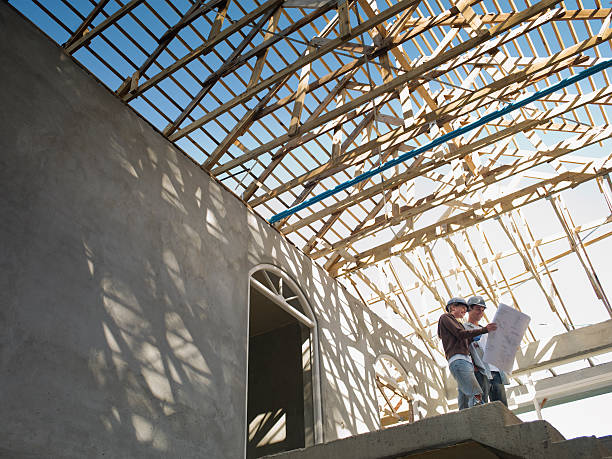Find more Construction Services
When planning a building project, finding reliable construction services is crucial for success. Whether you're embarking on a residential renovation, commercial development, or new build, connecting with qualified construction professionals ensures quality workmanship, adherence to building codes, and timely project completion. Understanding how to locate and evaluate construction services can save time, money, and prevent potential headaches.

Construction services encompass a wide range of specialties and expertise, from general contracting to specialized trades like electrical work, plumbing, and masonry. Finding the right construction professionals for your specific project requires research, planning, and understanding what qualities to look for. This guide explores how to identify, evaluate, and select construction services that meet your project requirements and budget constraints.
How to Find Reliable Construction Services in Your Area
Locating quality construction services begins with thorough research. Start by asking friends, family, and colleagues for recommendations based on their experiences. Online platforms like Houzz, Angie’s List, and HomeAdvisor can connect you with local construction professionals and provide access to reviews from previous clients. Professional associations such as the Associated General Contractors of America (AGC) or the National Association of Home Builders (NAHB) maintain directories of member contractors who adhere to industry standards and codes of ethics.
When searching for local construction experts, visit completed projects in your neighborhood to identify contractors doing quality work. Local building departments can often provide information about licensed contractors operating in your area. Additionally, building supply stores frequently maintain lists of trusted contractors they regularly work with, offering another valuable resource for homeowners seeking construction services.
Understanding New Building Project Management Services
Project management is the backbone of successful construction projects. Professional project managers coordinate all aspects of the construction process, from initial planning and design to final inspection and handover. They serve as the primary point of contact between clients, architects, engineers, and subcontractors, ensuring clear communication throughout the project lifecycle.
Effective project management services include budget development and monitoring, schedule creation and tracking, quality control processes, and regulatory compliance oversight. Project managers anticipate potential issues before they arise and develop contingency plans to address them. They also manage the procurement of materials and equipment, coordinate deliveries, and ensure that all work meets building codes and project specifications. For complex projects, hiring a dedicated construction project manager can significantly reduce stress and increase the likelihood of successful project completion.
Choosing Between Residential Construction Companies
Residential construction companies vary widely in size, specialization, and service offerings. Some focus exclusively on custom home building, while others specialize in renovations, additions, or specific housing types like multi-family dwellings. When evaluating residential construction companies, consider their experience with projects similar to yours, their portfolio of completed work, and their reputation among previous clients.
Request detailed proposals from multiple companies that outline scope, timeline, materials, and costs. Pay attention to how thoroughly they assess your project needs and how clearly they communicate their process. Verify their licensing, insurance coverage, and warranty offerings. The best residential construction companies maintain transparent communication, provide regular progress updates, and have established systems for addressing changes or issues that arise during construction. Personal compatibility is also important—you’ll be working closely with your chosen company for months, so selecting a team you trust and communicate well with is essential.
What to Look for in Local Construction Experts
Qualified local construction experts bring valuable knowledge of regional building codes, permit requirements, and environmental considerations specific to your area. They typically have established relationships with local suppliers and subcontractors, which can expedite your project and potentially reduce costs. When evaluating local experts, verify their licensing and insurance status through your state or local licensing board.
Request references from recent clients and take time to visit completed projects if possible. Experienced local construction professionals should be willing to provide detailed contracts that protect both parties and clearly define project parameters, payment schedules, and dispute resolution procedures. They should also demonstrate knowledge of local zoning regulations, historical district requirements if applicable, and typical structural challenges in your region such as soil conditions or weather considerations.
Hiring Commercial Building Contractors for Business Projects
Commercial construction projects require specialized expertise due to their complexity, scale, and regulatory requirements. When selecting commercial building contractors, prioritize those with experience in your specific industry, as they’ll understand the unique needs of retail spaces, offices, restaurants, or industrial facilities. Commercial contractors should demonstrate knowledge of ADA compliance, fire safety regulations, and commercial building codes.
Commercial construction typically involves more stakeholders than residential projects, including investors, tenants, and various regulatory bodies. Professional commercial contractors maintain sophisticated project management systems to coordinate these complex relationships and ensure all requirements are met. They should provide comprehensive documentation of their safety records, bonding capacity, and insurance coverage appropriate for commercial work. Additionally, they should offer references from similar commercial projects and evidence of their financial stability, as commercial projects often span longer timeframes and involve larger budgets than residential construction.
| Commercial Contractor Type | Typical Project Scope | Key Specializations |
|---|---|---|
| General Commercial Contractors | Overall project execution | Project management, scheduling, subcontractor coordination |
| Design-Build Firms | Integrated design and construction | Streamlined process, single point of responsibility |
| Construction Management Companies | Owner representation | Budget oversight, schedule management, quality control |
| Specialty Commercial Contractors | Specific building systems | HVAC, electrical, plumbing, structural steel |
| Tenant Improvement Contractors | Interior renovations | Retail, office, restaurant build-outs |
Prices, rates, or cost estimates mentioned in this article are based on the latest available information but may change over time. Independent research is advised before making financial decisions.
Evaluating Construction Service Proposals and Contracts
Once you’ve identified potential construction services, carefully review their proposals and contracts before making a final decision. Comprehensive proposals should include detailed scope descriptions, material specifications, timelines with milestones, payment schedules, and change order procedures. Be wary of unusually low bids, as they may indicate the use of substandard materials or incomplete understanding of project requirements.
Contracts should clearly define responsibilities, dispute resolution processes, warranty terms, and insurance coverage. They should also address potential scenarios like weather delays, material shortages, or discovery of unforeseen conditions. Consider having an attorney review contracts for large projects to ensure your interests are protected. Professional construction services will welcome questions about their proposals and contracts, viewing this as an opportunity to demonstrate their transparency and commitment to client satisfaction.




